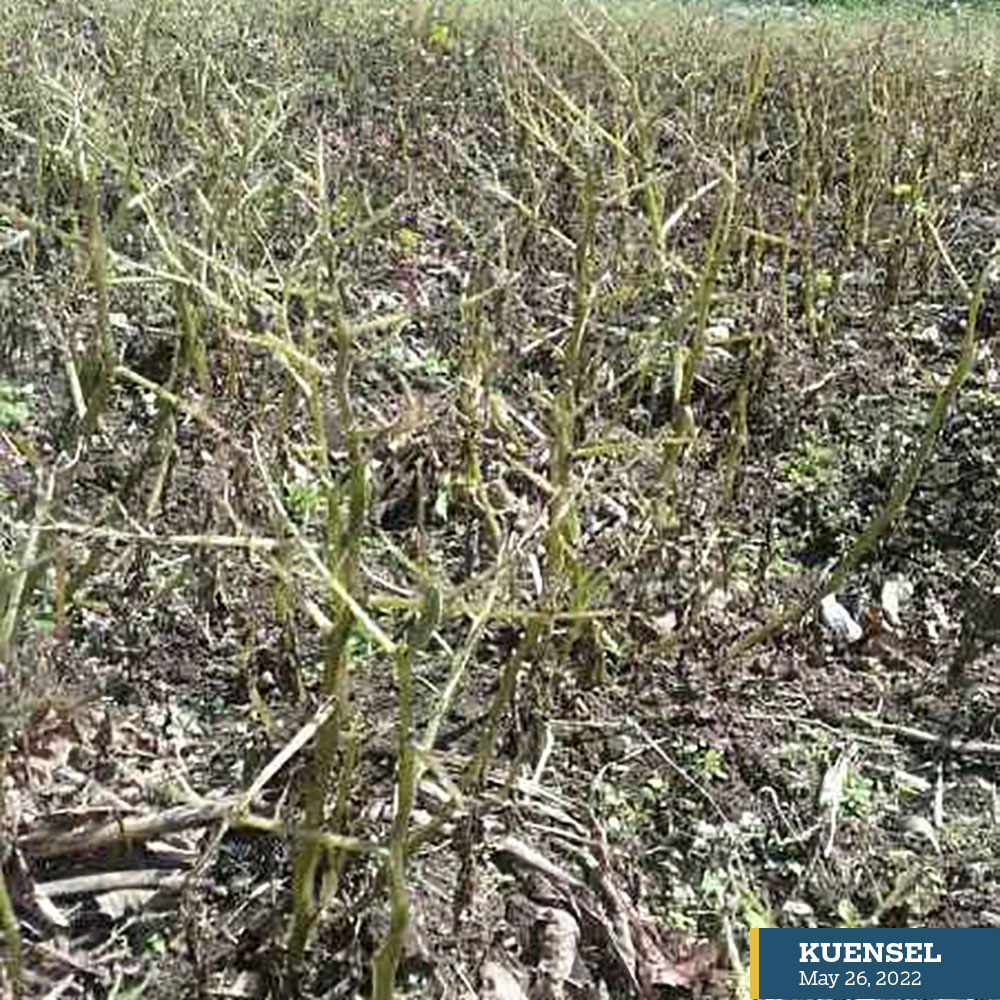Tshering Namgyal | Mongar
Farmers of Muhung in Mongar are worried about their potato yield this year, a major source of income for the farmers in the chiwog.
They said a large portion of their potato fields has been destroyed by armyworm the first time so far.
Chimi Wangmo, 65, from Damtsang, who lost three-fourths of her two langdo (area ploughed by a pair of oxen in a day) field. She said that the yield would only be enough to be kept as seed for the next season. “A little would be left for the family to consumer”
All shoots have died before they could mature. Now even the roots are affected.
Last year, the family fetched about Nu 90,000 from selling 80 bags of potatoes. They could also save for self-consumption and to plant this season.
She says the family has been usually depending on the income from selling potatoes to buy essential items like rice, oil and salt that would last for about seven months. “With no income from potato this season, we might have to work at construction sites for a daily wage.”
Muku Lhamo, 45, from Mangzhing also said that she lost an entire potato field measuring about half an acre. Last year, she sold over 30 bags of potatoes, which earned Nu 40,000. “Besides buying essentials, we used the money to pay taxes and other living expenses.”
“But we can’t blame anyone. We can’t challenge nature,” she added.
Potatoes are usually harvested in July and the pest’s attack began a month ago.
They said the worms shifted to maize fields after the potatoes. However, after the recent rainfall, and pesticides from the gewog agriculture extension office the maize survived.
Sherimung gewog agriculture extension officer, Tshokey, said she immediately visited the fields after receiving a complaint. She helped monitor and helped spray pesticides in the field of about 20 affected households.
“Some used the pesticide others did not because they couldn’t kill the insects.”
Muhung village has 72 active households excluding eight gungtongs (empty households), that cultivate potatoes. The farmers earn between Nu 30,000 to Nu 100,000 in a season. “Almost all of them have lost their crops this season,” the village tshogpa said.


